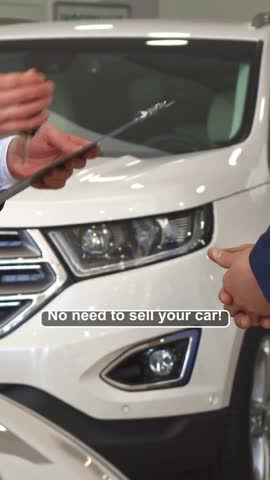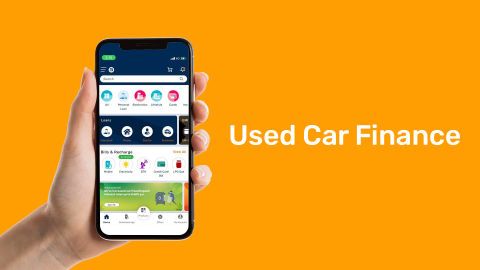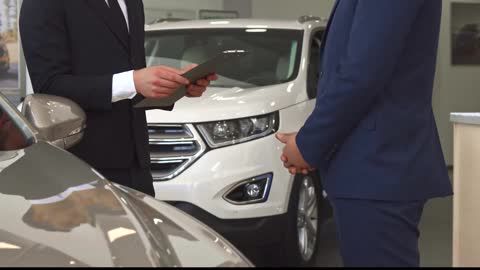With fuel prices on the rise, improving your car’s mileage is one of the most effective ways to reduce running costs. Whether you're commuting daily or planning weekend getaways, better fuel efficiency can help you save significantly over time.
However, if your car is ageing and mileage improvements aren't making much of a difference, it might be time to consider switching to a fuel-efficient car. With attractive used car loan options from Bajaj Finance, you can make this switch without any financial strain. With the Bajaj Finserv Used Car Loan, you can get a high-value loan by meeting some basic eligibility requirements. Check your used car loan eligibility now and find out how much you can borrow.
But before you explore that option, here’s how to get the most out of your current vehicle.
How to calculate your car’s mileage accurately
Before working on improving your mileage, it's important to measure your current fuel efficiency:
- Fill your tank to full and reset the trip meter or note the odometer reading.
- Drive your car normally for a few days.
- Refill the tank and check how many litres were added.
- Divide the kilometres driven by the litres used.
- Repeat this over a few refuels to get an accurate average.
14 tips to increase the mileage of your car
- Maintain correct tyre pressure
Driving with under-inflated tyres increases rolling resistance, forcing your engine to work harder and consume more fuel. Refer to your vehicle manual for the recommended tyre pressure and check it regularly, ideally once a week. This will help in increasing the mileage of your car. - Follow a strict maintenance schedule
Regular servicing helps maintain engine health, improves combustion, and reduces fuel consumption. Regular maintenance tasks include:- Oil changes: Use the recommended grade of motor oil for your vehicle. Oil that is too thick or too thin can affect fuel consumption.
- Air filters: A clean air filter ensures that your engine gets the proper air-fuel mixture, which improves efficiency.
- Spark plugs: Worn or dirty spark plugs can cause misfires and reduce fuel efficiency. Replacing them at regular intervals helps keep your engine running smoothly.
- Avoid aggressive driving: Sudden acceleration, harsh braking, and rapid gear shifts all lead to poor fuel efficiency. Drive smoothly and maintain a steady pace to reduce fuel consumption. Here are a few things you can do to improve your car mileage.
- Avoid rapid acceleration and hard braking: Smooth driving helps maintain a steady speed and uses less fuel. Accelerate gently and anticipate stops to avoid sudden braking.
- Use cruise control: On highways, cruise control can help maintain a constant speed, which often results in better fuel efficiency.
- Avoid excessive idling: Idling consumes fuel without moving the vehicle. Turn off your engine if you expect to be stopped for more than a minute or two.
- Lighten your load: Carrying unnecessary weight puts extra strain on the engine. Remove items that are not needed and avoid carrying heavy loads in the boot. Detachable roof carriers should also be removed when not in use.
Additional read: Best car accessories for the ultimate road trips - Reduce aerodynamic drag: Driving with open windows or sunroofs at high speeds can cause increased air resistance. For better fuel efficiency on highways, keep the windows rolled up and use the car's ventilation or AC system wisely.
- Plan your trips efficiently: Short trips and stop-start traffic reduce mileage. Try to combine errands into one trip and use route planning tools to avoid traffic congestion. Fewer cold starts and less idling lead to better fuel economy.
Additional read: What is ADAS (Advanced Driver Assistance Systems) - Use the correct fuel type: Always fill your tank with the fuel grade recommended in your car’s manual. Using high-octane fuel unnecessarily or low-grade fuel can negatively impact mileage and engine performance.
- Monitor fuel consumption regularly: Keep a log or use your car’s digital mileage tracker to observe how different driving patterns and maintenance habits affect your fuel usage. Sudden drops in mileage can be a sign that your vehicle needs servicing.
- Use air conditioning strategically: Air conditioning increases fuel consumption, especially at low speeds. Ventilate your car before switching on the AC and avoid using it continuously on short drives.
- Consider engine tuning and minor upgrades:Over time, your engine may not perform at its best. A professional engine tune-up or fuel injector cleaning can help restore efficiency. Some authorised additives may also improve combustion and mileage in older vehicles.
- Stick to optimal speed ranges: Driving at 60–80 km/h generally delivers the best mileage. Speeding or frequent acceleration forces the engine to consume more fuel. Maintain a steady speed and avoid unnecessary overtaking.
- Use higher gears when possible: Driving in a lower gear at high speeds increases engine RPM and fuel consumption. Shift to higher gears at the right time. In automatic cars, avoid heavy acceleration to allow timely gear changes.
Additional read: Pre-Owned Car Buying Guide in India - Minimise use of electrical accessories:
Using defrosters, heated mirrors, additional lights, or charger’s places extra load on the engine, especially in smaller cars. Use these accessories only when necessary. - Consider upgrading to a fuel-efficient used car: If your current vehicle is over 10 years old and still delivers poor mileage despite regular maintenance, it might be time for an upgrade. A more recent, fuel-efficient used car could lower your monthly fuel expenses and provide a better driving experience. With Bajaj Finserv Used Car Loan, switching to a better vehicle is simple and affordable. Key benefits include:
- Loan amounts of up to Rs. 2.50 crore
- Financing of up to 100% of the car’s value
- Minimal documentation and quick processing
- Flexible repayment tenure of up to 84 months
You can even check your pre-approved offer online by simply entering your mobile number—no branch visit required.
Increasing your car’s mileage isn’t just about saving money—it’s about driving smarter and preserving your vehicle’s health. Simple habits like maintaining optimal tyre pressure, avoiding sudden acceleration and braking, using the right engine oil, reducing excess load, and keeping up with regular servicing can significantly boost fuel efficiency. Planning routes to avoid traffic, turning off the engine during long stops, and driving at steady speeds also help reduce fuel consumption. If despite these efforts your car’s mileage remains unsatisfactory, it may be time to consider a more fuel-efficient model. With Bajaj Finserv Used Car Loan, you can easily switch to a certified pre-owned car that offers better mileage, without straining your finances
Check your pre-approved used car loan offer today and drive home a better-performing, fuel-efficient car.




